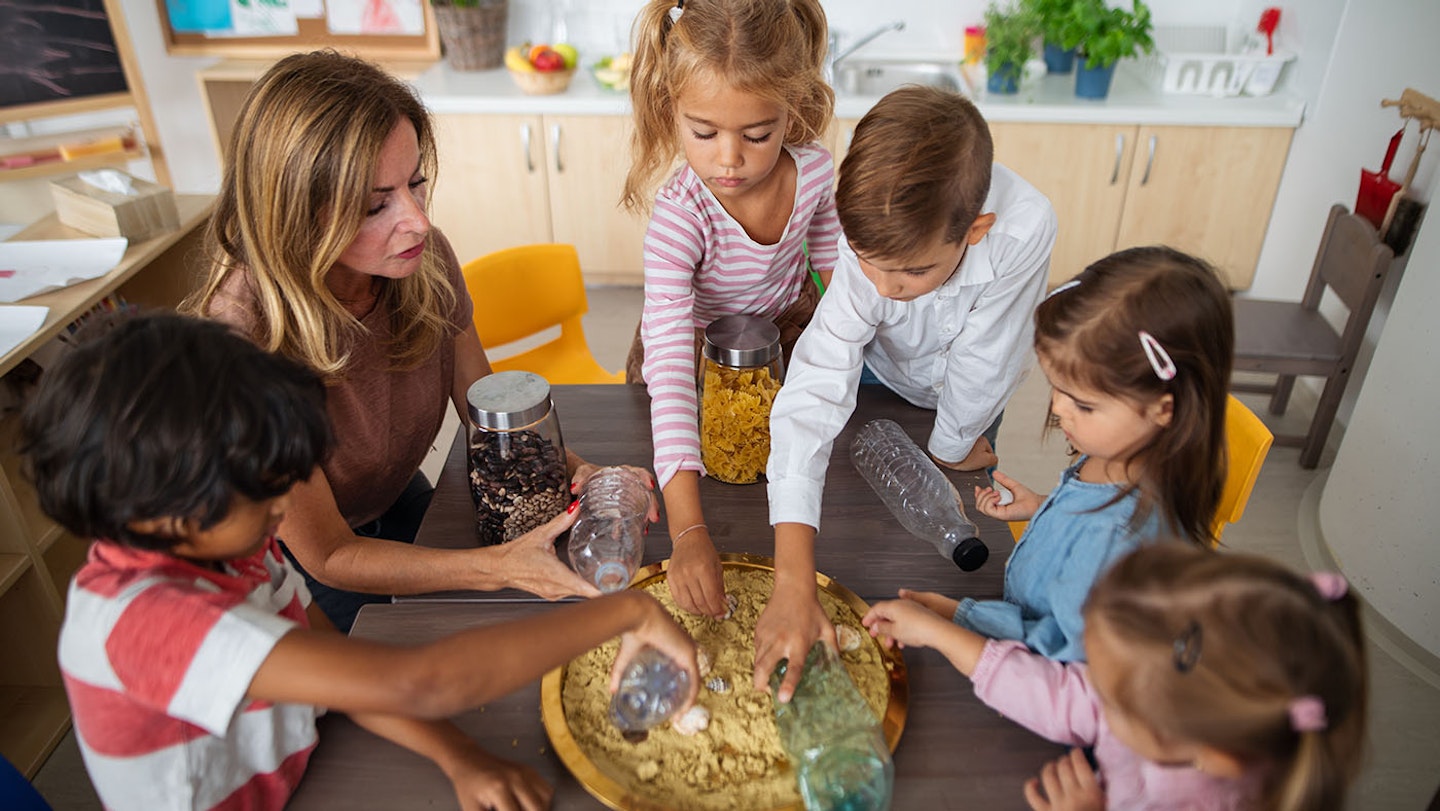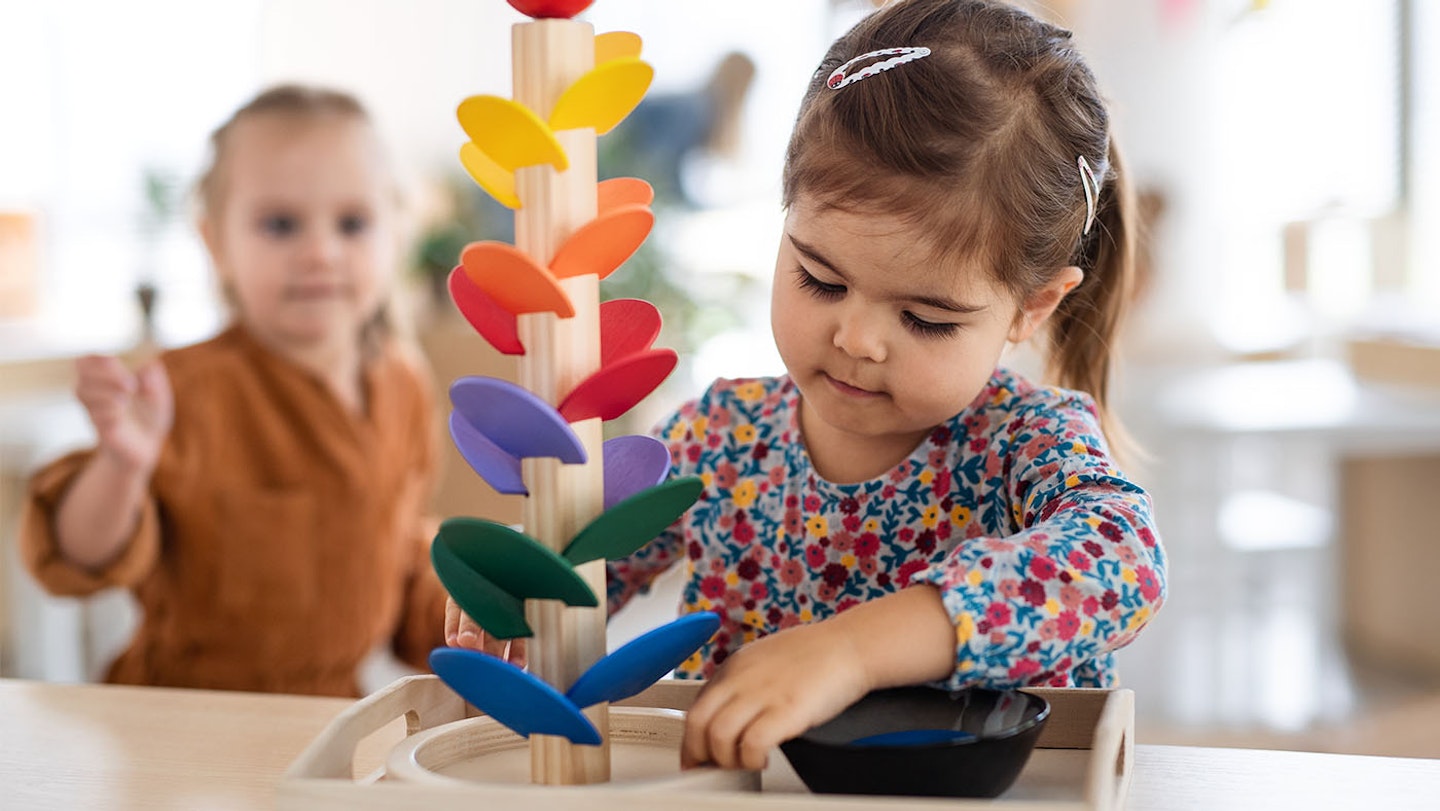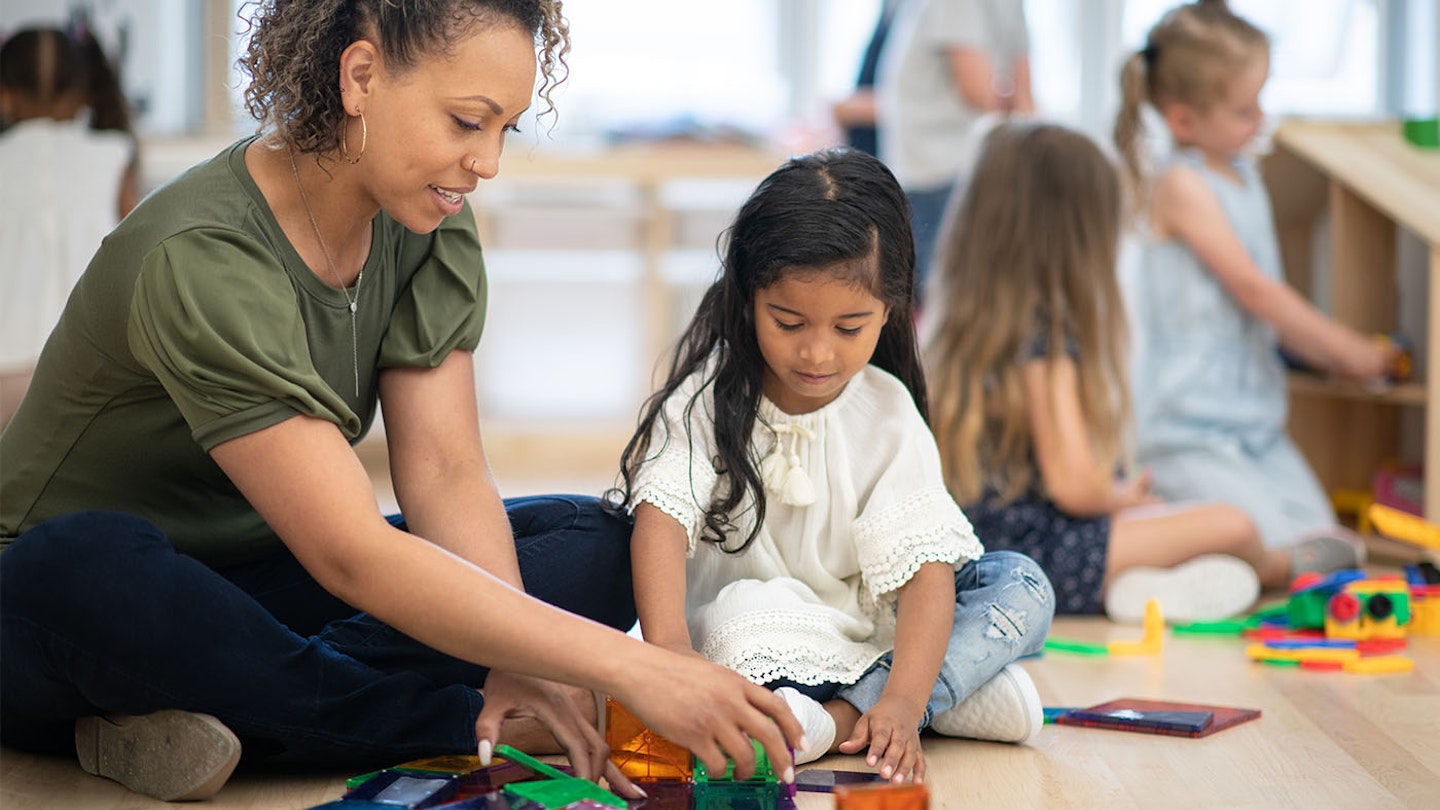Montessori is a way of education that is based on self-directed activity and hands-on learning. It was developed in the early 20th century by Dr Maria Montessori and emphasises the independence of children and sees them as more than capable of leading their own learning.
"This method of education was based on the scientific observations of children in which Maria Montessori found that children when they were able to interact with the pre-prepared environment freely, would follow a natural ingrained developmental path," explains founder of Paint Pots Montessori Schools, Georgina Hood.
Within a Montessori setting, the relationship between the child, the teacher and the environment are the foundation on which learning is placed. "With the support of adults the children, as agents of change, are capable of making intelligent choices for themselves. The teacher prepares the environment and follows each child’s interests, materials are then presented to challenge children to extend their learning. Children work individually, in groups, or with a teacher."
What are Montessori teaching methods?
Because every element of the classroom is so carefully prepared, learning the Montessori way is child-led.
"From the pre-prepared materials, the children themselves choose which activities spark their interest and are supported by the teachers to practise and master that skill or task," says Georgina. "The teachers act as guides to education rather than educators and provide a stimulating and fun learning environment for the children. The children are given independence within boundaries to make choices for themselves and develop skills that will become the foundation for their future learning."
Classes at Montessori nurseries and schools are typically comprised of mixed age groups as children benefit from being able to learn at their own pace, not an expectation set by age alone.
"Children also have the example of those who have mastered a skill to watch and learn from, and the experience of helping or showing another child a skill that they themselves have mastered. They also usually learn in uninterrupted work cycles rather than have blocks of time for different activities. Equal emphasis is placed on social and emotional growth as well as intellectual development."
Montessori schools also promote self-discipline rather than the teachers disciplining the children.

What does a Montessori classroom and nursery look like?
Montessori classrooms are carefully crafted environments designed to meet the needs of children. "All activities are at the children’s height to encourage freedom of movement and choice. Maria Montessori discovered that children developed a deeper understanding through this type of experiential learning," Georgina says. "She found that happy self-motivated learners form positive images of themselves as confident, successful people."
Every material in a Montessori classroom aims to support an aspect of child development, creating a match between the child’s natural interests and the available activities.
"Activities include for example frames where children can practise doing up buttons, whisks, sweeping brushes, building blocks, art and music activities."
A Montessori classroom is a calm environment, with natural materials such as wood and cotton being used. The activities on the shelves are attractive and inviting.

What to look for when choosing a Montessori school or nursery
"It is important to visit the school or nursery and trust your instincts - a bit like buying a house often parents instinctively know when the school seems right for the child and their family," Georgina recommends.
When you walk in, do you see content and happy children, parents and teachers? "Talk to the teachers, ask them questions such as, if the school is accredited to any organisations, takes trainee teachers and how the school keeps up to date with current practices," says Georgina. "Talk to other parents with similar aged children to see if they and their children are happy with the school. Think about your child and what sort of environment will suit them, when you visit the school or nursery do you see children interacting in the way you imagine your child would if they were there?"
What are the pros of Montessori education?
• A Montessori child develops independence, confidence, and a feeling of empowerment. Their individual sense of self and resilience are robust.
• The freedom within the prepared environment nurtures wonder and curiosity, providing the foundation for a lifelong love of learning. Children are excited to ask questions, try things in new ways and explore the undiscovered.
• The range of ages and stages found within the classroom create a rich and vibrant community of acceptance and collaboration.
• Responsibility to each other, our environment and for themselves prepare the child and echo the global community outside of the classroom.
What are the pros of Montessori education?
• It can be pricey to send your child to a Montessori school or nursery.
• Some parents might find the curriculum too loose.
• Your child will want to do things for themselves. This could mean changing the way you do things at home.
• Your child will want to choose independently. This doesn’t always match your ideas and can be tricky to manage, but with some planning, good listening and careful presentation you will quickly see the collaboration they practise so often in nursery school.
Meet the expert: Georgina Hood, the founder of Paint Pots Montessori Schools, has a history in Early Years Education spanning over three decades. One of her main goals continues to be to lead by example and inspire teachers and parents to listen to and follow the child which enables the child to grow and develop at their own speed and in their own time.
